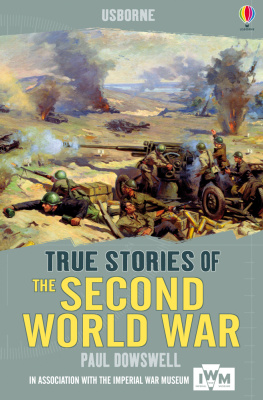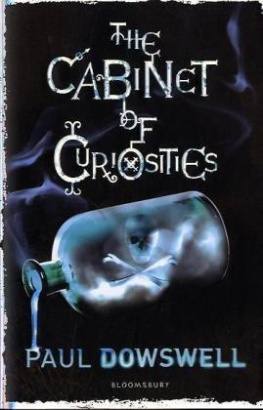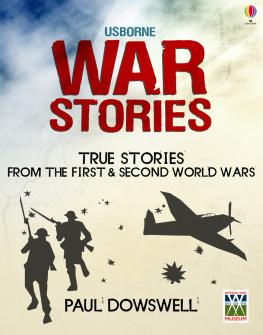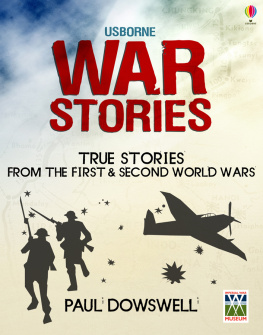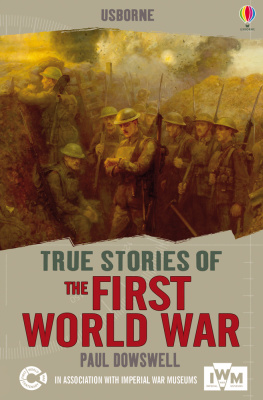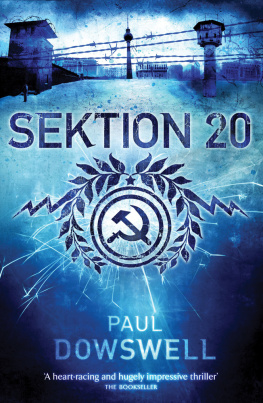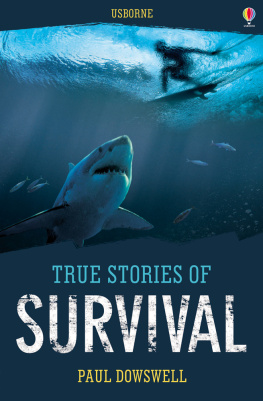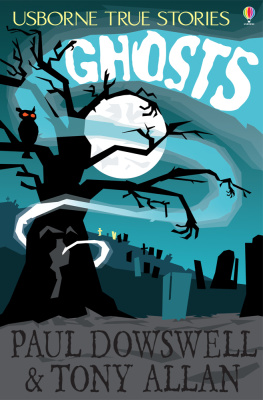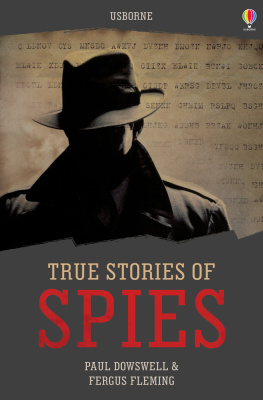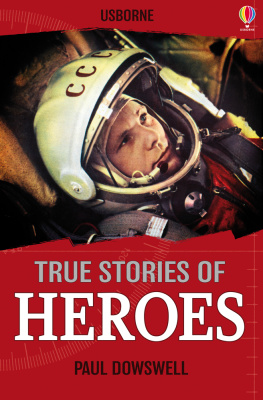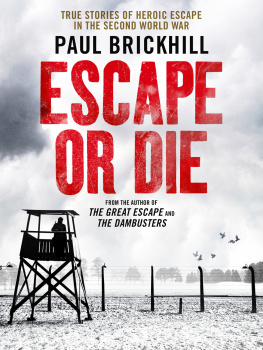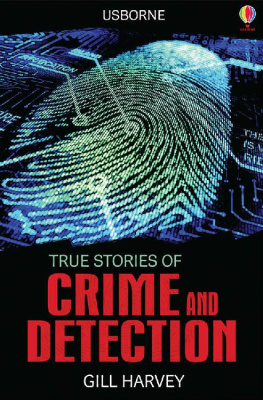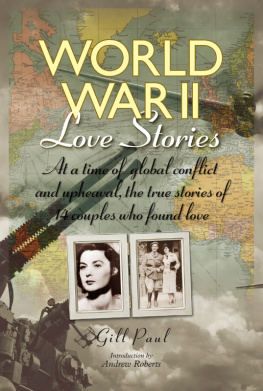Paul Dowswell - Usborne True Stories: The Second World War
Here you can read online Paul Dowswell - Usborne True Stories: The Second World War full text of the book (entire story) in english for free. Download pdf and epub, get meaning, cover and reviews about this ebook. publisher: Usborne Publishing Ltd, genre: Non-fiction. Description of the work, (preface) as well as reviews are available. Best literature library LitArk.com created for fans of good reading and offers a wide selection of genres:
Romance novel
Science fiction
Adventure
Detective
Science
History
Home and family
Prose
Art
Politics
Computer
Non-fiction
Religion
Business
Children
Humor
Choose a favorite category and find really read worthwhile books. Enjoy immersion in the world of imagination, feel the emotions of the characters or learn something new for yourself, make an fascinating discovery.
- Book:Usborne True Stories: The Second World War
- Author:
- Publisher:Usborne Publishing Ltd
- Genre:
- Rating:3 / 5
- Favourites:Add to favourites
- Your mark:
- 60
- 1
- 2
- 3
- 4
- 5
Usborne True Stories: The Second World War: summary, description and annotation
We offer to read an annotation, description, summary or preface (depends on what the author of the book "Usborne True Stories: The Second World War" wrote himself). If you haven't found the necessary information about the book — write in the comments, we will try to find it.
Usborne True Stories: The Second World War — read online for free the complete book (whole text) full work
Below is the text of the book, divided by pages. System saving the place of the last page read, allows you to conveniently read the book "Usborne True Stories: The Second World War" online for free, without having to search again every time where you left off. Put a bookmark, and you can go to the page where you finished reading at any time.
Font size:
Interval:
Bookmark:

Epic naval encounters between titanic warships, monumental battles involving hundreds of thousands of men, and duels between lone snipers facing almost certain death, these are just some of the dramatic tales in this collection of stories from the Second World War. For those who survived, it would remain the most intense and vivid experience of their lives.

More than half a century now separates us from the Second World War. The number of films, TV documentaries and books still produced on the subject show that it continues to exert a powerful fascination. Today the numbers of those still alive who actually fought in the war is rapidly dwindling, but many people have grandparents or other relations who remember it all too well as children. The conflict is not some distant history it is still within graspable, living memory.
The stories in this book touch on many different aspects of the war. There are epic naval encounters between titanic warships, and monumental battles between armies of hundreds of thousands of men. But there are also single-handed duels between opposing snipers, and other tales of lonely individuals facing almost certain death.
For those who survived the war it would remain the most intense and vivid experience of their lives. Many of those who died were in their late teens or early twenties and many of them would still be alive today had the war not come to scythe them away.
The Second World War was fought between two great power blocs. On one side was the Axis an alliance of Germany, Italy and Japan, who were also joined by Hungary, Romania and Bulgaria. On the other side were the Allies principally Britain and her empire, Soviet Russia and the United States. These gargantuan forces faced off against each other in four major areas of fighting: Western Europe, Eastern Europe and the U.S.S.R, North Africa, and the Eastern Pacific and South East Asia (see maps further on in this chapter).
The cause of any war is usually too complex to reduce to a simple explanation. But, in essence, World War Two was caused by the desire of the Axis powers to gain empires and the unwillingness of the Allies to let them. Nazi dictator Adolf Hitler dreamed of lebensraum (living space) in Eastern Europe and Russia, for his German master race. Mussolini wanted to create a new Roman empire for Italy. Japans military rulers sought to take over the Asian and Pacific territories fading European powers had seized for their own empires in previous centuries.
The war began with the German invasion of Poland on September 1, 1939. Here Polish cavalry charged against German tanks with predictably disastrous results. It ended on September 2, 1945, six years and a day later, when Japan finally surrendered, following the destruction of two of her cities by atomic bombs. At first Germany and her allies made spectacular advances, and almost all of Europe fell under their control. This was largely due to the effective fighting strength of the German army and their Blitzkrieg (lightning war) tactics. Here, tanks, aircraft and other powered vehicles, were used to make fast and highly effective work of opposing armies. In the first two years of the war, only Britain held out, protected from an invasion by its air force, navy and the English Channel. The Battle of Britain the first significant aerial battle in history was Hitlers first defeat.

With Britain isolated at the edge of the continent, Hitler turned to his chief ambition, the conquest of Soviet Russia. The invasion on June 22, 1941, was the greatest in history. By the autumn of that year, German troops were at the gates of Leningrad and Moscow. But a suicidal resistance by Red Army troops, and the onset of the ferocious Russian winter, prevented Hitler from snatching his greatest prize.
On the other side of the world, Germanys ally Japan had been establishing her own empire on the Asian Pacific seaboard (see map at the end of this chapter). On December 7, she attacked the United States at Pearl Harbor. So began a devastating campaign, which saw her armies sweep through the Philippines and Malaya, then down to Java and Burma, to threaten both Australia and India. When Japan attacked the United States, Hitler also declared war on the Americans, despite the fact that he had still to defeat the British and the Russians. British prime minister Winston Churchill was ecstatic. So we had won the war after all. Our history would not come to an end, he reflected that night. Hitlers fate was sealed As for the Japanese, they would be ground to a powder. All the rest was merely the proper application of overwhelming force.
He was absolutely right. Germany and Japan had decided to wage war against the most powerful nation on Earth. America responded to their challenge by diverting her vast industrial strength to winning the war. In three and a half years, her dockyards built 1,200 new warships. By 1944, her factories were producing one new warplane every five minutes. Quite aside from this mammoth expenditure, $2 billion was still found to fund the development of the worlds first atomic weapons.
In the summer of 1942, American, British and Commonwealth troops began to claw back territory seized by Japan in the first six months of the Pacific war. In North Africa, a British victory against German and Italian troops at El Alamein, in October 1942, scotched any possibility that German and Japanese troops would link up in India. The victory also allowed for the American and British invasion of Italy from the south, which took place in July 1943.
During 1942, the Soviets began to recover from the invasion of 1941. Their armies were better equipped, both from their own factories and substantial American and British arms imports, and their soldiers had become a formidable fighting force. When Russian troops destroyed the German 6th Army at Stalingrad over the winter of 1942 to 1943, the war in the east turned into a slow retreat that ended with the Soviet occupation of the German capital, Berlin.
On June 6, 1944, American, British and Canadian troops took part in the D-Day landings in Normandy. Now Hitlers armies had to fight on three fronts Eastern Europe, Western Europe and Italy. Within a year the war in Europe was over. Hitler committed suicide on April 30, 1945, and on May 8 Germany surrendered. Japan lasted through to the summer, until the devastating atomic bomb attacks on Hiroshima and Nagasaki.
Novelist John Steinbecks description of the war: As dirty a business as the world has ever seen seems a fair epitaph. At least fifty-five million people died as a direct result of it.

The war at sea, May 1941
In early May of 1941, the crew of the Bismarck had been feverishly preparing for an inspection by none other than the German fhrer (leader), Adolf Hitler. Now he was here among them. Decks had been scrubbed, rails polished, uniforms pressed and the ships barber had worked his way through as many of the 2,100 men as time and his blistered fingers allowed. The visit to Germanys greatest battleship was going well. The crew, whose average age was all of 21, were immensely proud of their new vessel. As Hitler passed their assembled ranks, they stood there, faces stiff with pride and overawed to be in the presence of their leader. Not everyone on parade was impressed with Hitler, though. As he walked by anti-aircraft gunner Alois Haberditz, the Nazi leader looked straight through him. Haberditz shuddered. Hitler had eyes as cold and pitiless as a shark.
Font size:
Interval:
Bookmark:
Similar books «Usborne True Stories: The Second World War»
Look at similar books to Usborne True Stories: The Second World War. We have selected literature similar in name and meaning in the hope of providing readers with more options to find new, interesting, not yet read works.
Discussion, reviews of the book Usborne True Stories: The Second World War and just readers' own opinions. Leave your comments, write what you think about the work, its meaning or the main characters. Specify what exactly you liked and what you didn't like, and why you think so.

